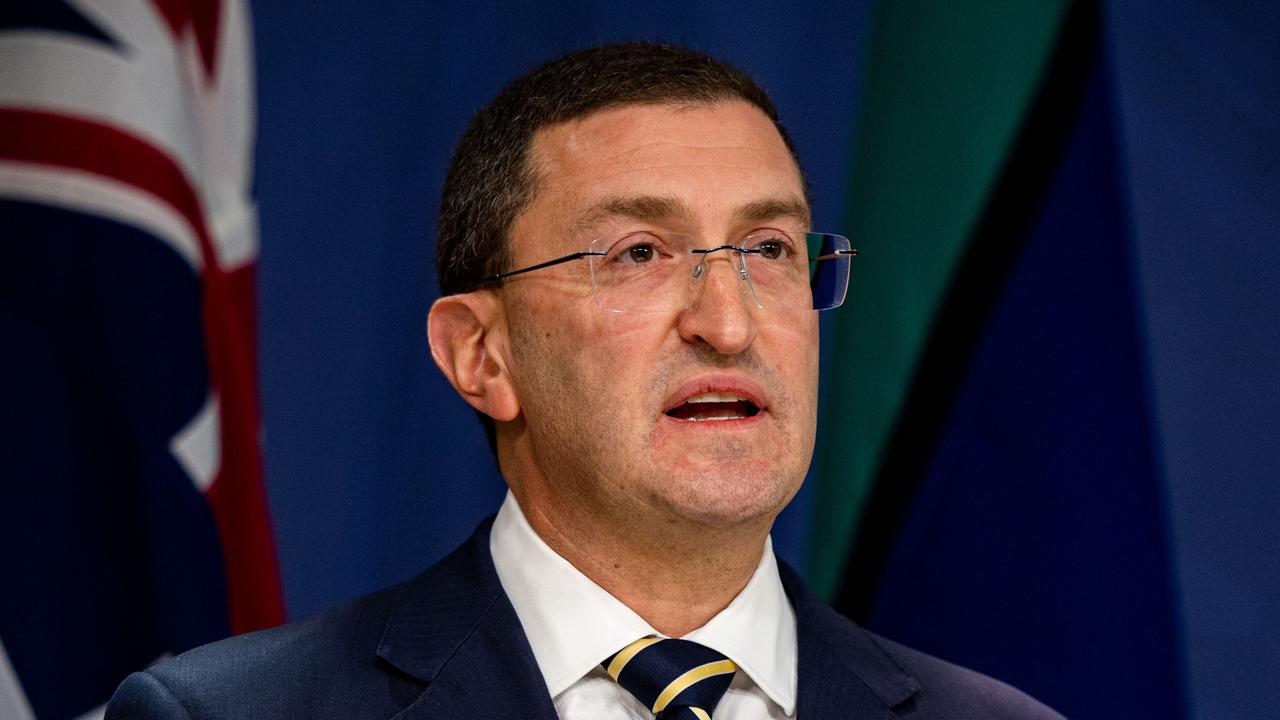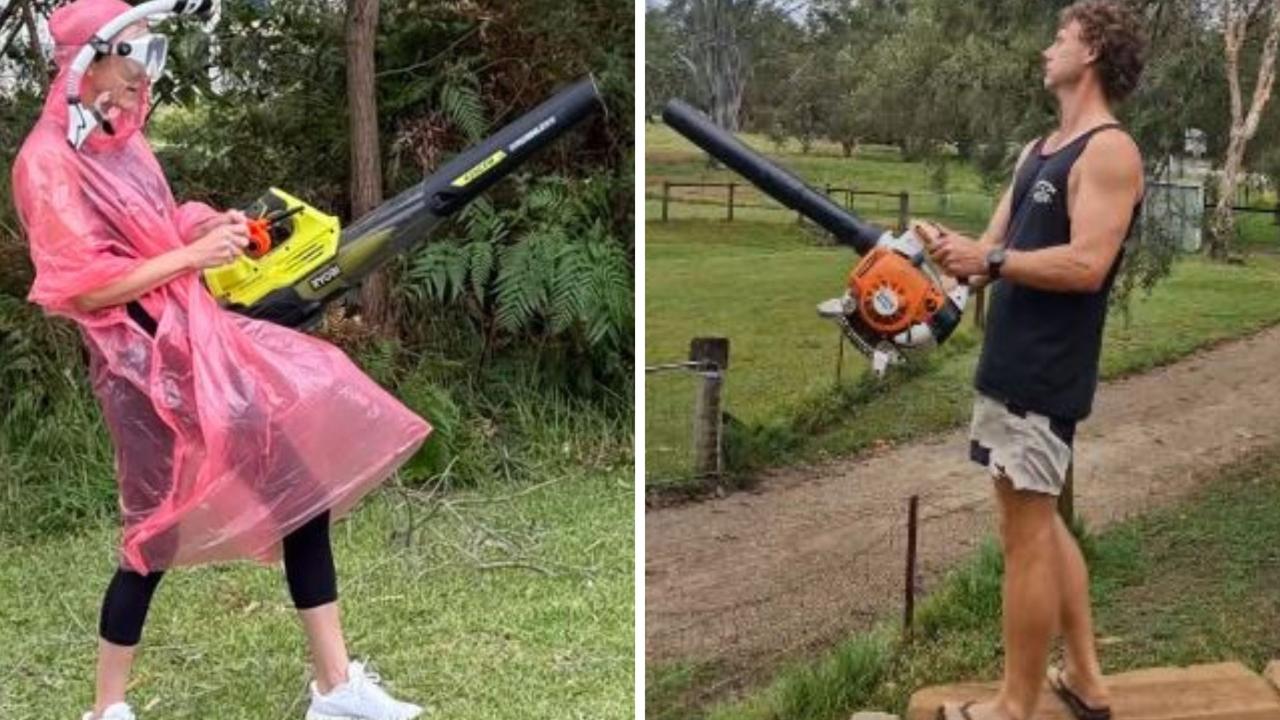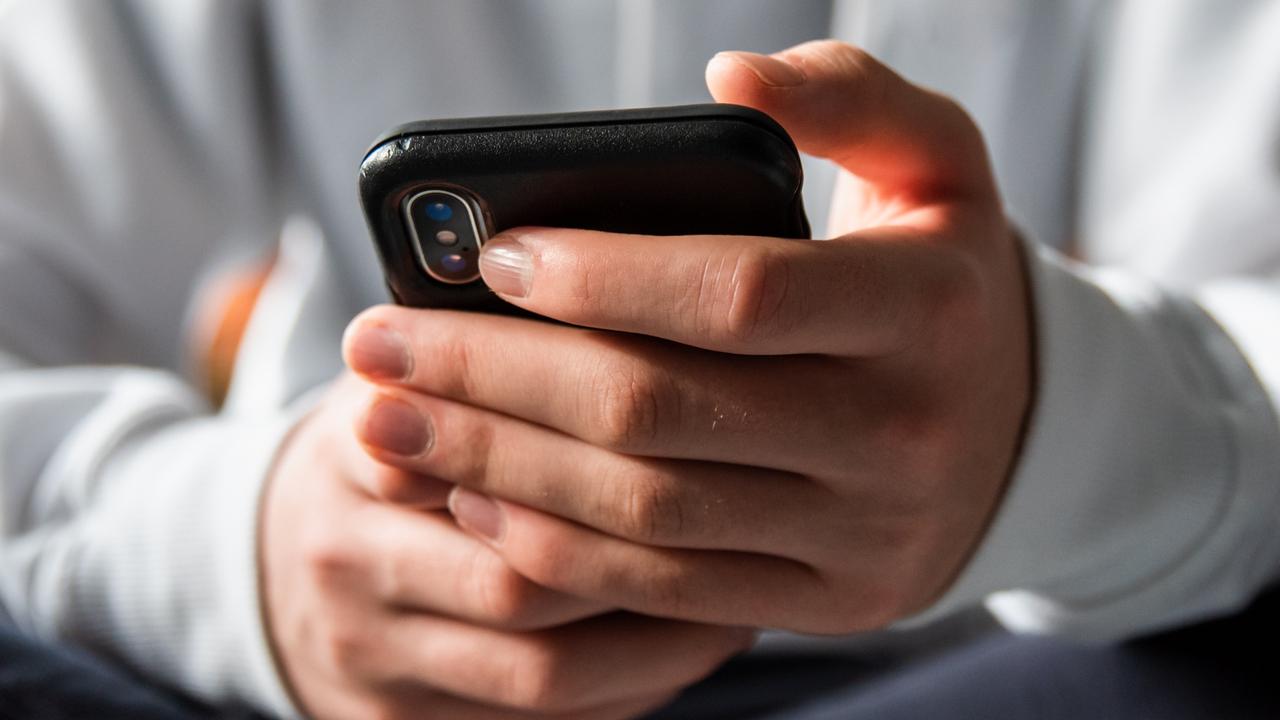Social Media Summit hopes to come up with plan for protecting young people online
The fallout from kids using social media has been laid bare at a summit on the issue, including some “simply frightening” statistics.
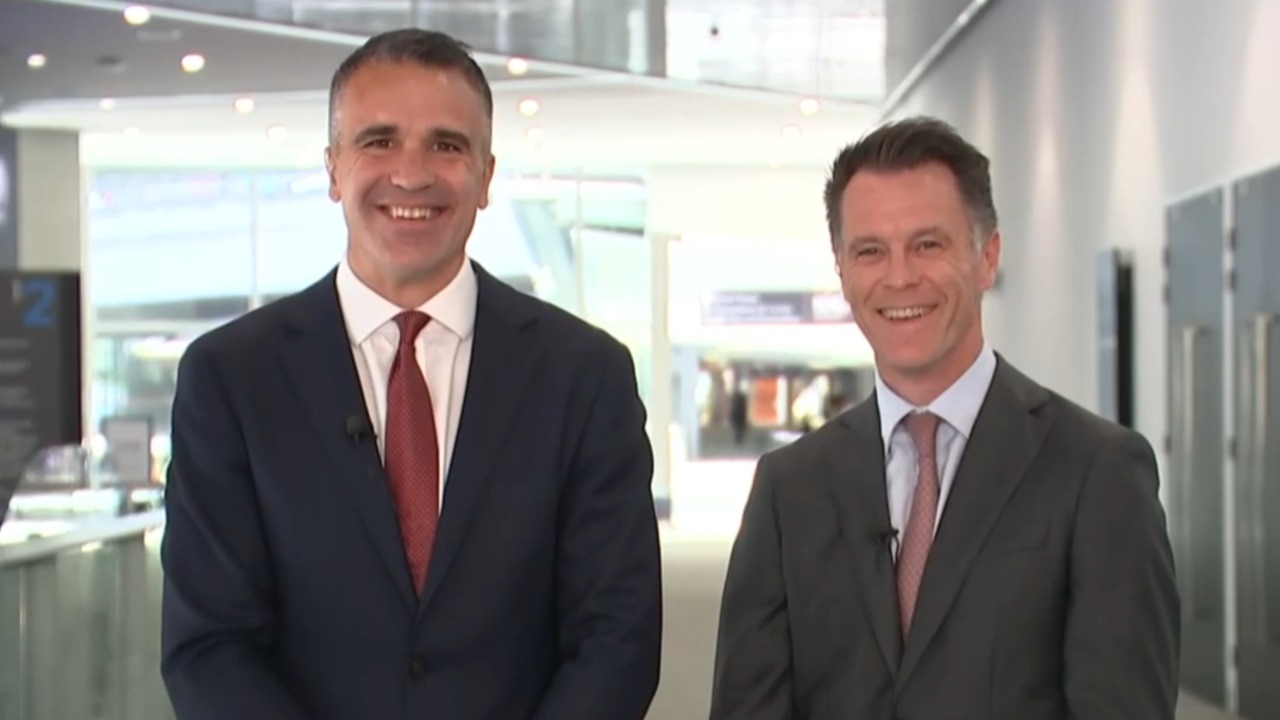
Youth advocates are calling for social media bans for young people in an effort to provide a solution to improve the adverse impact of online spaces on children.
The Social Media Summit, jointly hosted by the NSW and South Australian governments, kicked off in Sydney on Thursday.
Marking the one-year controversial “phone ban” in NSW state schools, Premier Chris Minns said despite initial backlash from students, the “natural experiment” of removing the distraction of a mobile phone had provided “overwhelming evidence” about the positive impact it was having on students.
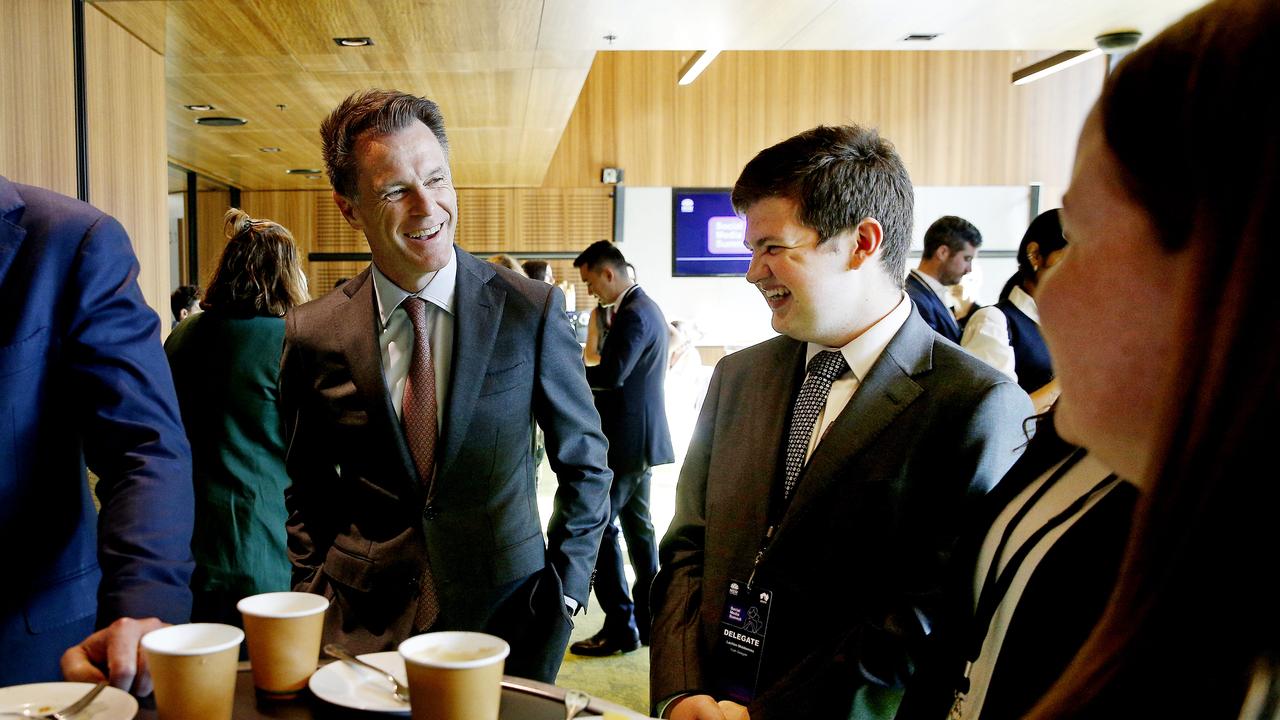
Speaking at the summit, Mr Minns said teachers had reported a reduction in behavioural issues among students, less bullying and higher attendance rates.
He said a school in Blacktown was also reporting an extra 50 minutes of learning each day.
Mr Minns said parents, teachers and the government were all committed to providing a safer environment for younger people online.
“If we think about the life they’re currently living, that fear is completely understandable,” he said.
“We can in a democracy take the best of technology while reserving space for other things, important things … like human connection.
“We cannot and we should not outsource these questions to unelected billionaires living in silicon valley.
“Our first responsibility should be to do no harm.”
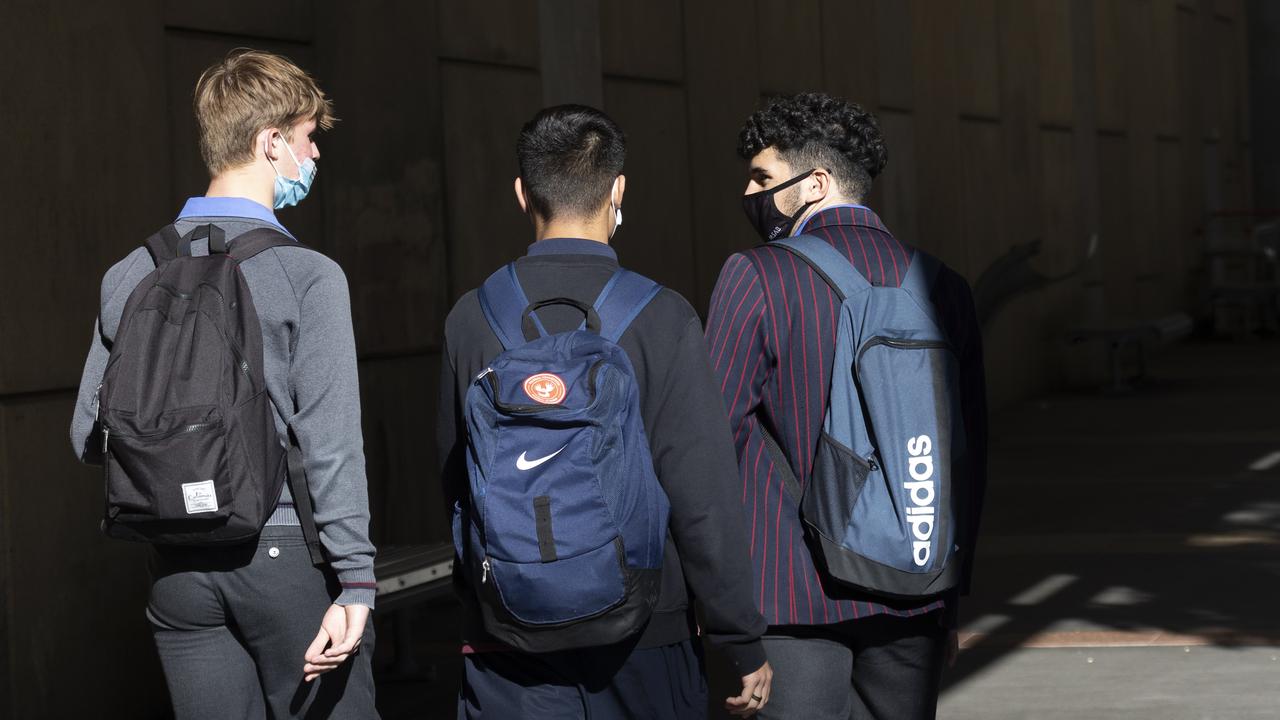
Social media ban
Keynote speaker Jean Twenge, professor of psychology at San Diego State University in the US, supported the idea that social media should be banned for children under 16 years old.
Dr Twenge said those aged between 13 and 15 were the most vulnerable and encouraged parents to delay letting their children have access to smartphones.
“Technology isn’t all bad, smartphones are amazing, but they need to be a tool that we use and are not using us,” Dr Twenge said.
Dr Twenge said the latest data showed “heavy” users of social media were up to 200 per cent more depressed than “light” users.
“That doesn’t strike me as small,” she said.
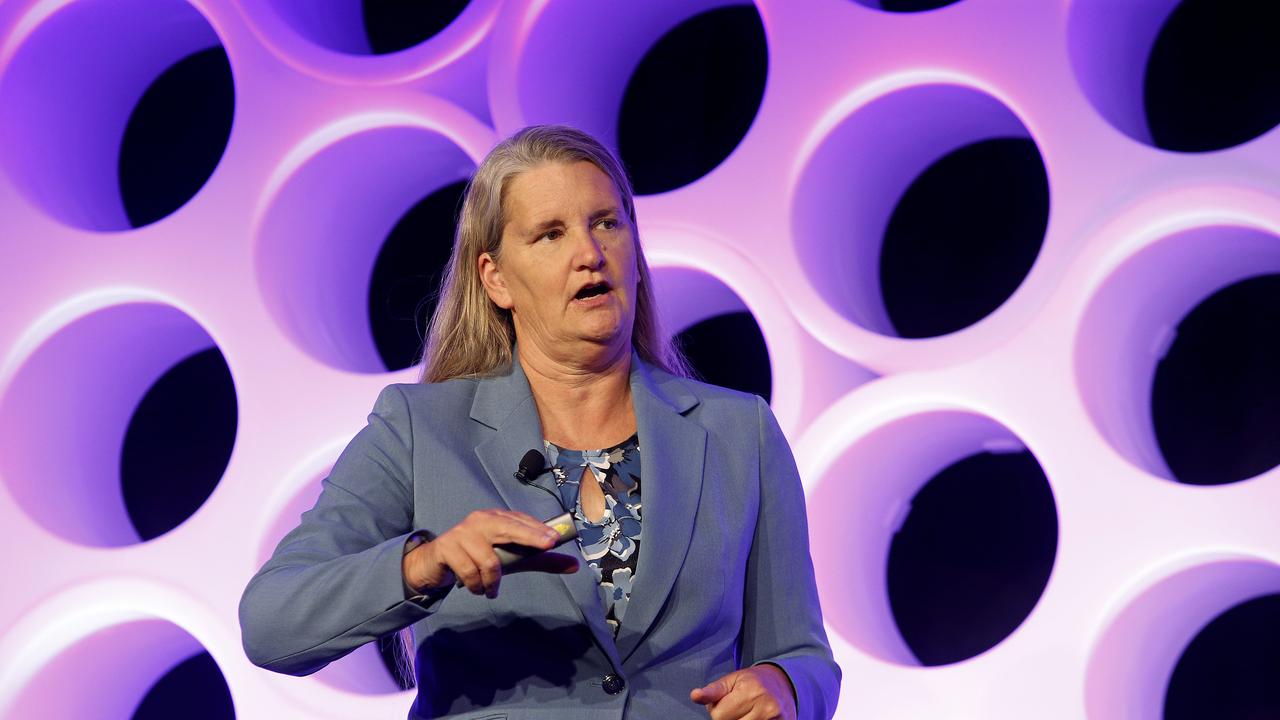
Adolescent psychologist Michael Carr-Gregg said there had been a “seismic” decline in children’s mental health since social media became a more prominent part of people’s lives.
Dr Carr-Gregg said the “simply frightening” statistics included ninth-month waiting lists for children to see a psychologist and an unprecedented number of children being prescribed medication.
He joined the call for creating a social media restriction for children aged 13 years and younger.
“Social media is the great envy amplifier, it gives our children the highlight reels of others’ lives and makes them feel inadequate,” Dr Carr-Gregg said.
“We know you wouldn’t hand them keys to a car so why are we providing the unfettered access to a digital world.”
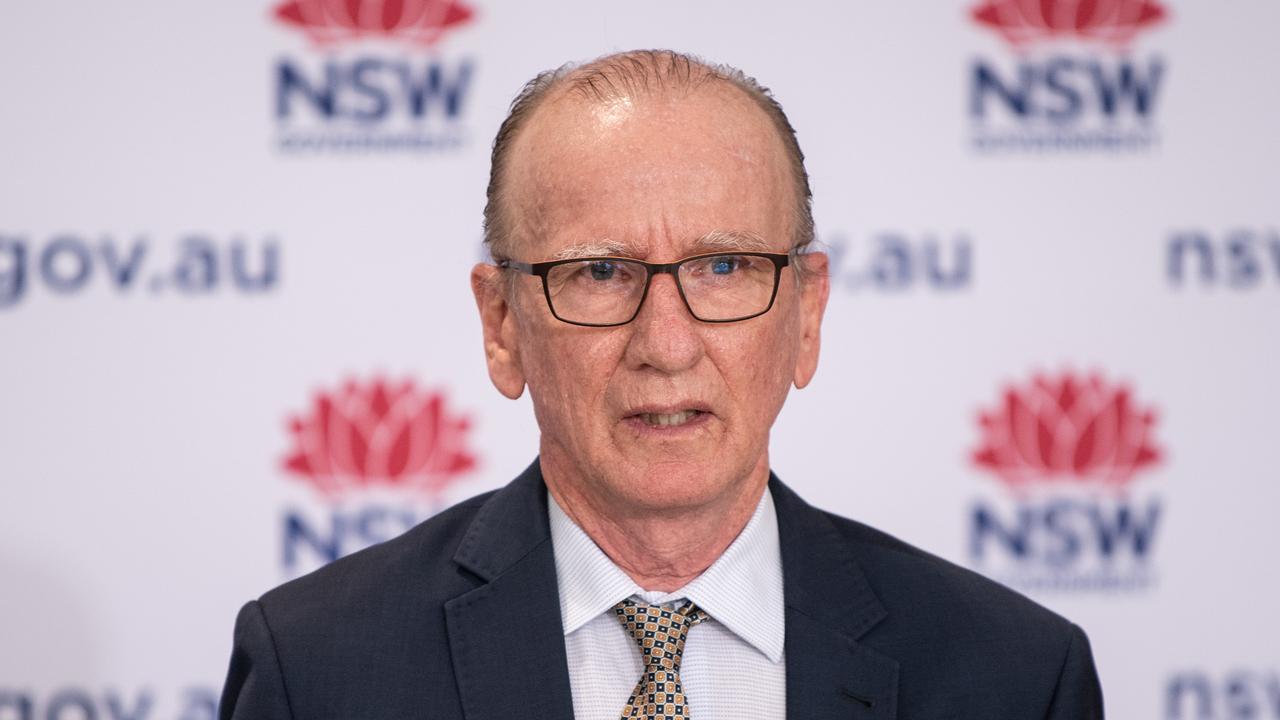
However, NSW chief psychiatrist Murray Wright said it was important to remember anyone could be vulnerable when accessing social media.
“I don’t think that vulnerability stops at 16,” Dr Wright said.
“People can go through levels of vulnerability throughout their lives.
“Looking at an age where it becomes less risky, it can obscure the fact and it’s dangerous potentially for all of us.
“I’m apprehensive to draw simple conclusions from complex data.
“We need to pay close attention to other factors.”
More data needed
Keynote speaker Frances Haugen, a former product manager who leaked tens of thousands of documents in 2021 exposing the inner workings of Facebook, said social media platforms could do much more to provide the necessary data needed to develop safer online spaces for children.
“The platforms have been able to provide the data for more than a decade,” Ms Haugen said.
“These platforms don’t want us to have it, they don’t have to hand it over.”
Instagram released an update to provide teenage users more restrictive control over what they could access on the app.
The changes include turning off notifications between 10pm and 7am and letting teens indicate what kind of content they want to see.
However, Ms Haugen said the app should have also provided the option to turn off notifications during school hours and provide children the right to control what content they did see.
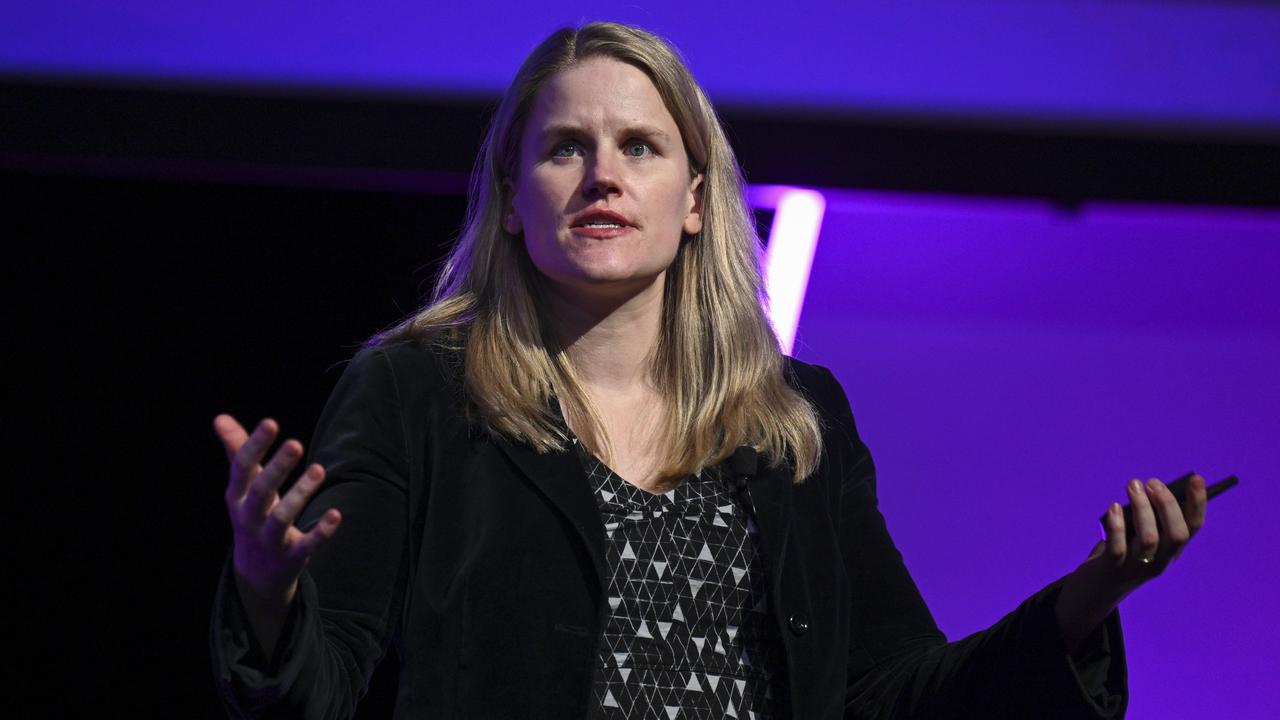
She also suggested children should be given the chance to reset their algorithms to provide a “vanilla” starting point if they’d been viewing content they didn’t want to see anymore.
“I totally agree if we don’t work with kids, we will not develop the right solutions,” she said.
Ms Haugen said data published in 2021 found that one-third of American children aged between seven and nine said the were using social media.
Finding solutions
Real Tech executive director Alice Hawkins said she’s “so tired of the debate” about how innovation will be the saving grace.
“I find it a bad faith debate,” Ms Hawkins said.
“I’m not really clear what innovation is meant to mean and what we’re meant to be defending.”
She said Australia, and the rest of the world, were constantly fighting against US tech companies that answered to their own rules.
“A Silicon Valley company can sue us and we can’t do much for that to get to them,” Ms Hawkins said, referring to US legislation safeguards publishers from being held responsible for inappropriate content.
“(It’s) an American law we have to face … we’ve got to think about that more.”
Australia’s eSafety Commissioner, Julie Inman Grant, said it was also important states worked with the federal government to get parents and teachers involved in providing solutions on how to ensure kids are feeling safe online.
“It’s about putting boots on the ground in (providing) eSafety champions in every school and getting the information into the hands of parents and teachers,” Ms Inman Grant said.
“We need safety revolution rather than a slowly safety evolution.”
Ms Inman Grant said only 10 per cent of parents nationally seek out online support on how to best support their children navigating social media spaces.
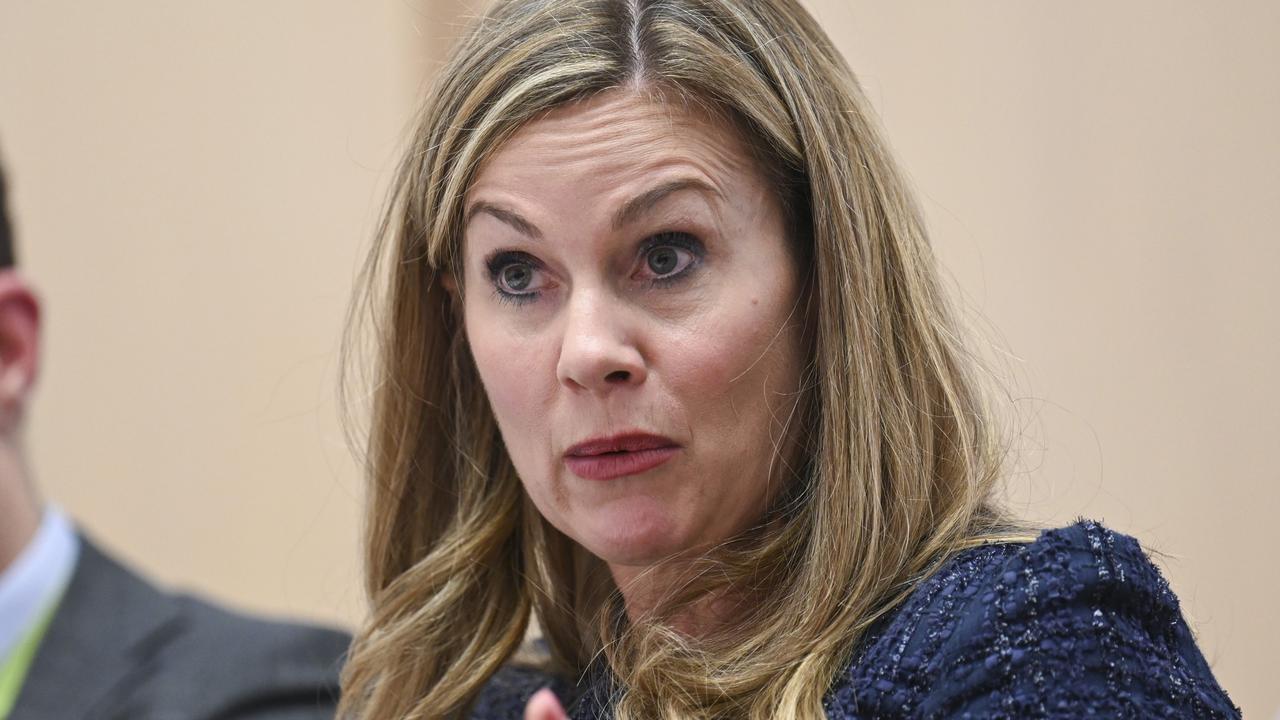
How to provide a safe space online
Mr Minns said the summit’s goal was to explore ideas about providing a safer space for kids online.
“It’s not about turning back the clock or recreating the world before smartphones and social media,” he said.
“The truth is we don’t want to do that.
“What we want to do is make sure this technology is working for us rather than us working for the technology.
“As individuals there’s only so much we can do.
“It’s up to us to decide what world we want to live in and the lives our children have in the next generation.
“If we assemble the best info, if we can formulate and articulate the right policies, then we can set a new course and take back some control and give our kids a chance for a full and happy life.”
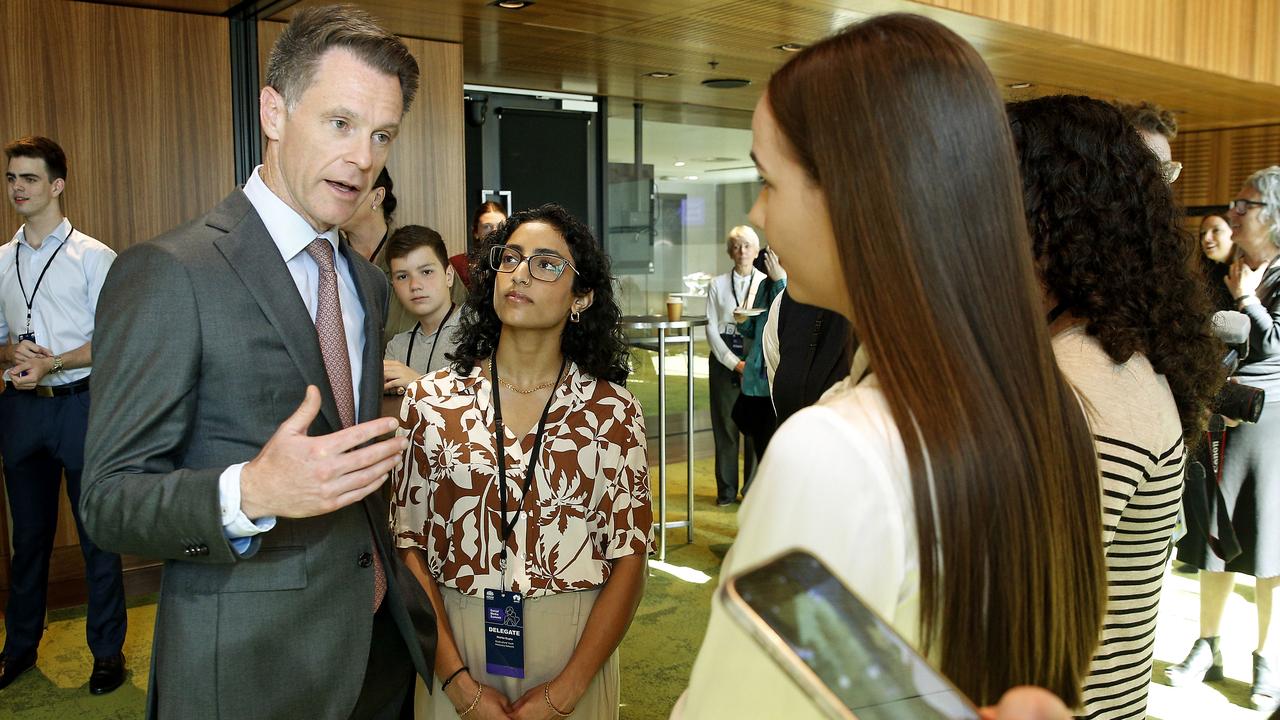
SA Premier Peter Malinauskas remembered the teens who had taken their own lives in Australia, noting social media pressures had played a role in those young people experiencing depression and anxiety.
“Each story tells us the same thing, we know we simply must act,” he said.
“The results are in, the science has settled and we know social media has changed childhood and it’s doing harm.
“We have an opportunity here in Australia that is unique and that’s protect children from the harm of social media.”
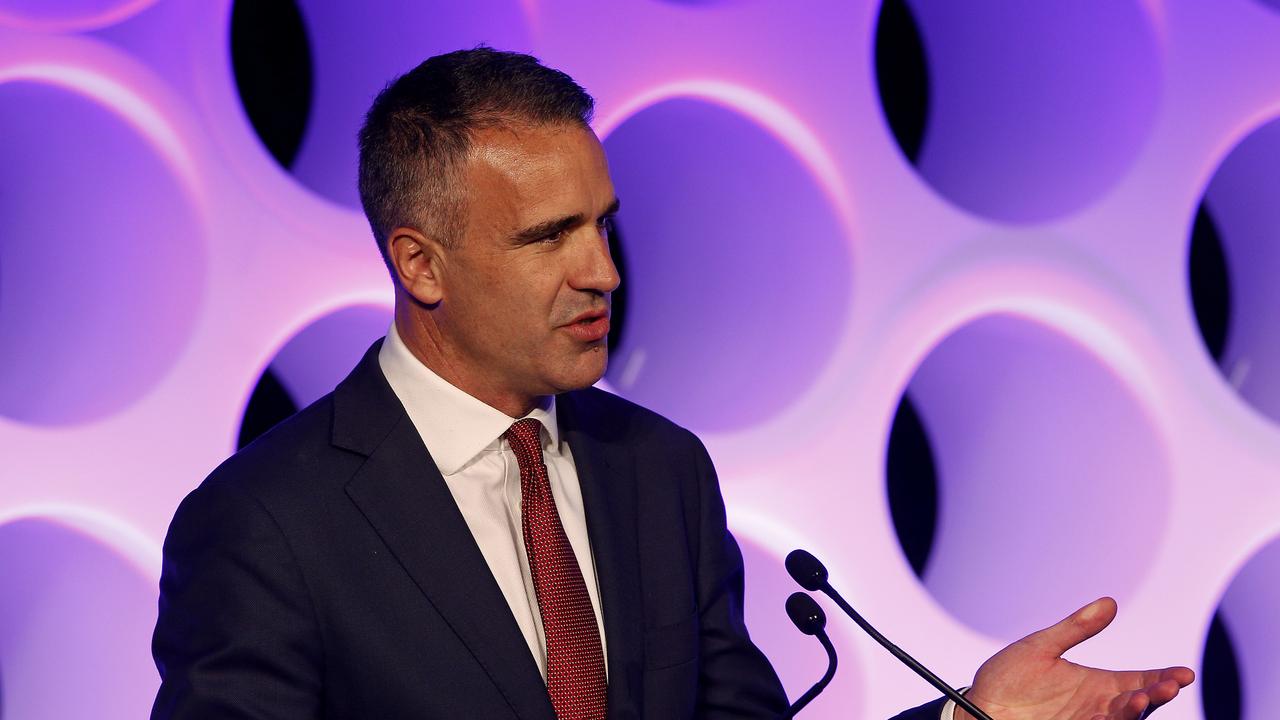
Mr Malinauskas said the summit would provide a chance to create “something that’s powerful and meaningful”
“The minds are in this room to be able to cultivate the requirements for the change, not just in terms of legislation that can be passed through parliament but also the change through society,” he said.
“We have the capacity that young people and future generations have the power to harness social media.”




